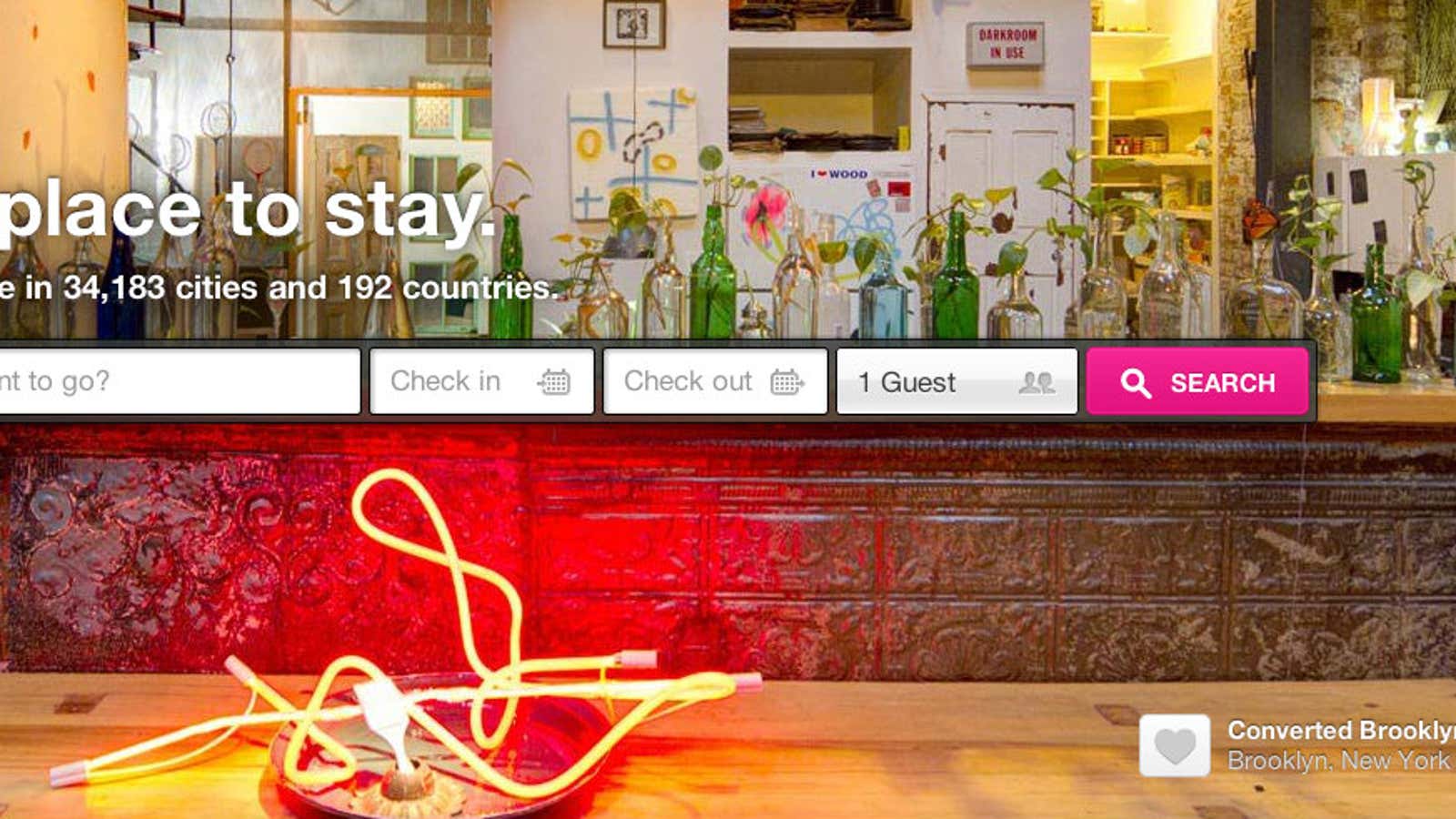Many new and valuable startups don’t really make anything. Instead of cutting out middlemen, they’ve become them, connecting people with specific genres of services or merchants.
Successful examples of this include transportation providers Uber and Lyft, and travel rental startup Airbnb. They have all raised huge amounts of money and spawned numerous copycats.
The companies that do it well have two major things in common, according to Anand Iyer, a cofounder of peer-to-peer fashion marketplace Threadflip. They use human input to better serve a narrow market, and actively steer clear of anything that you can’t do in minutes on a smartphone.
Whether it’s through intuitive ratings, manually curating products, treating suppliers well, or instantly responding when something goes wrong, successful middlemen use their staff and users to make markets work better.
Iyer says that an example of a service that fails to deliver in these areas is Craigslist, the online marketplace.
“As a consumer, you conduct a search, you email sellers or providers, you keep track of who you email, you schedule pickups and oversee transactions yourself,” Iyer writes at First Round Review. “You do all of this despite a high degree of anonymity, a poor mobile interface— neglecting the spike in mobile engagement—and no guarantees.” (Craigslist did not respond to a request for comment on Iyer’s critique. To be fair, company founder Craig Newmark is famous for personally helping out users with problems.)
Airbnb makes bad apartments hard to find using algorithms and staff curation. Uber uses ratings to sift out bad drivers and customers, which improves the service on both ends.
After finding that buyers got antsy and unhappy when anything took longer to arrive than 10 days after an order, Threadflip acted quickly.
“Now we not only send emails to both buyers and sellers with the seven- to 10-day expectation clearly outlined,” Iyer writes. “We also mail shipping labels to sellers so they only have to slap them on flat-rate boxes to send their products, and to encourage them to do so within the 10-day window.”
Another key point of focus for these startups is the interface they present to users. A small startup focused on a specific market isn’t going to have many chances to impress consumers before they move on or decide they don’t need a new app. It needs to convince the consumer its service is good the first time they use it.
Successful middlemen make easy and attractive mobile apps, make payments as easy as snapping a phone picture of a credit card, and remove most steps between downloading an app and getting a service or product out of it.
While there’s a new wave of middleman startups, plenty of these types of companies fail because they don’t attract enough people to make an effective market. When they’re serving a small and specific market, every user and supplier counts.
